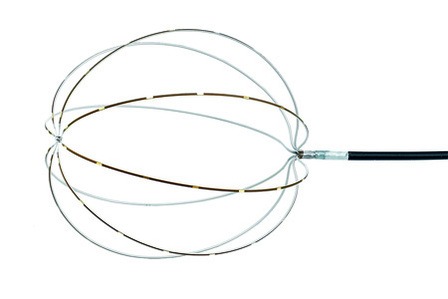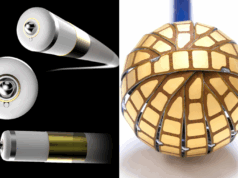
Abbott enters the catheter-based electrophysiology market with the announcement of an agreement to purchase Topera and the securement of the rights to purchase Advanced Cardiac Therapeutics (ACT). Both companies develop electrophysiology technologies for the diagnosis and treatment of heart rhythm disorders.
Topera is the developer of a novel diagnostic catheter and mapping software, or rotor identification system, which help physicians identify and target the specific areas of a person’s heart that are perpetuating atrial fibrillation. Under the terms of the acquisition, Abbott announced that it will acquire all outstanding equity of Topera for US$250 million upfront, plus potential future payments tied to performance milestones.
Topera’s rotor identification system (RhythmView workstation and FIRMap diagnostic catheter) has been shown, when used with existing catheter ablation therapy, to result in positive long-term success rates, even in difficult-to-treat cases.
According to an independent, multicentre, physician-sponsored study, using Topera’s system with catheter ablation resulted in a single-procedure success rate of 87.5% in patients undergoing a first ablation procedure, and an 80.5% success rate for all patients after a one-year follow-up.1 This compares to only a 50 to 60% success rate for patients treated with existing catheter ablation therapy alone.2 In addition to improving long-term outcomes with fewer procedures, using Topera’s rotor mapping system may result in shorter ablation times for some procedures because it identifies and targets the specific areas in an individual patient’s heart that are perpetuating atrial fibrillation.3
In a separate transaction in the electrophysiology market, Abbott also announced it has secured the right to purchase Advanced Cardiac Therapeutics (ACT) in the future, upon completion of key milestones. ACT, a private, venture-backed company, is developing a novel ablation catheter (TempaSure) designed to improve the safety and effectiveness of ablation procedures. Financial terms were not disclosed.
“There is significant room to use advanced rotor identification technologies to improve the success rate and reduce the need for multiple ablation procedures, and thus improve the health of people with atrial fibrillation,” says John M Capek, executive vice president, Medical Devices, Abbott. “The Topera acquisition and our agreement with ACT provide a foundational entry into the large, high-growth electrophysiology market, with differentiated technologies that can transform the way physicians treat people with complex heart rhythm disorders.”
“Topera’s mapping technology has the potential to change the paradigm for how physicians approach treating people with atrial fibrillation,” says John Miller, professor of Medicine and director of Clinical Cardiac Electrophysiology at Indiana University Health, USA. “The ability to more accurately target the areas of the heart perpetuating atrial fibrillation is a significant advancement in the field of electrophysiology, which may allow us to treat more people with atrial fibrillation and lead to better health results.”
Abbott’s electrophysiology business will be led by Michael Pederson, who joins Abbott from VytronUS, a privately held medical device company, where he was president and chief executive officer.
Topera’s RhythmView workstation and FIRMap diagnostic catheter received US Food and Drug Administration clearance and CE Mark in Europe in 2013. .
Completion of the Topera acquisition is subject to customary closing conditions, including antitrust clearance. It is expected to close in the fourth quarter of this year. Neither the Topera acquisition nor the right to purchase ACT is expected to impact Abbott’s ongoing full-year 2014 earnings-per-share guidance.
References
1 Miller J, Kowal R, Swarup V, et al. Initial independent outcomes from focal impulse and rotor modulation ablation for atrial fibrillation. Cardiovasc Electrophysiol. 2014 Sep; 25(9):921-9. doi: 10.1111/jce.12474. Epub 2014 Jul 23. |
| 2 Calkins H, Reynolds M, Spector P, et al. Treatment of atrial fibrillation with antiarrhythmic drugs or radiofrequency ablation: two systematic literature reviews and meta-analyses. Circulation. 2009, 2:349-361. |
| 3 Narayan SM, et al. Treatment of atrial fibrillation by the ablation of localized sources: The Conventional ablation for AF with or without focal impulse and rotor modulation (CONFIRM) trial. JACC 2012 60(7)628-636. |









